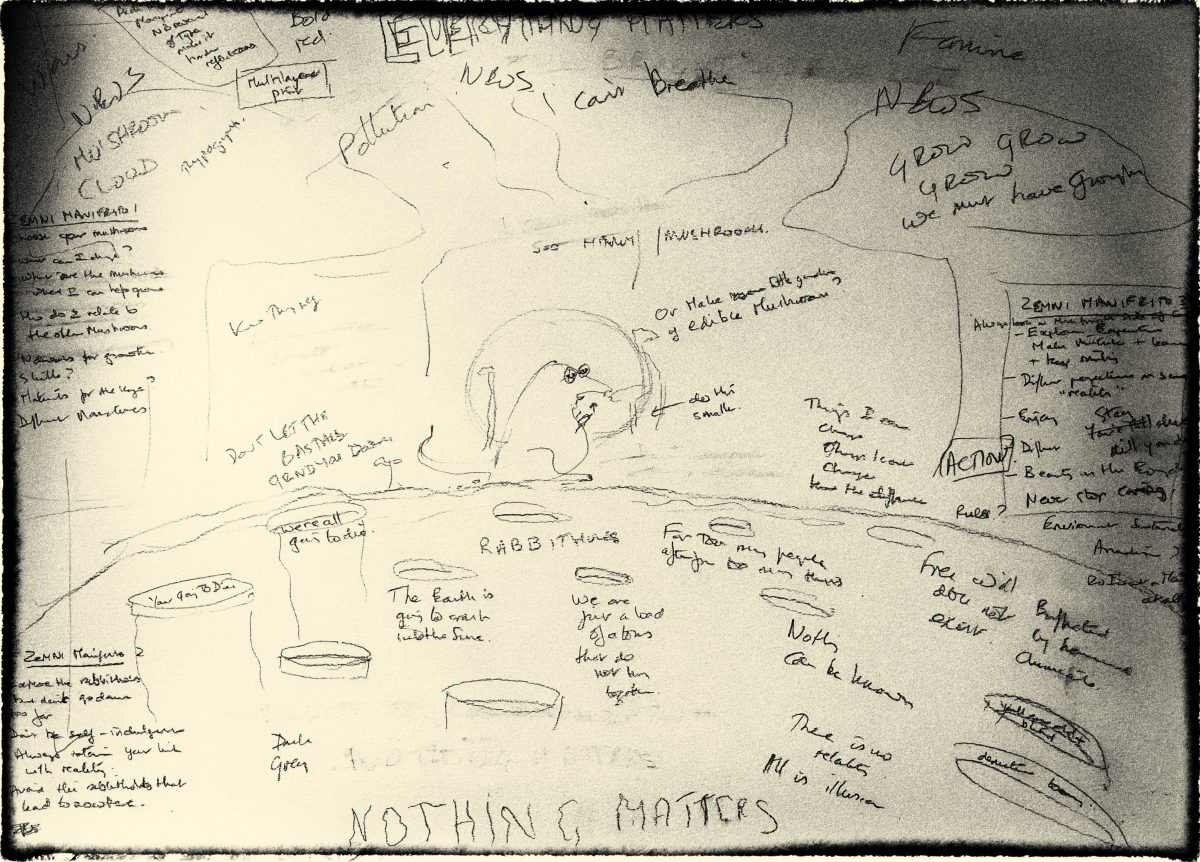‘Tales from the Edge’ is part of a longer term cross-media concern with creative documentary and activism that underpins my creative identity and all my visual work. The four location projects explore different approaches to addressing a number of fundamental underlying axes of tension and questioning in location-based visual narratives and the nature of documentary work:
- interlinkages between multiple ‘objective’, ‘subjective’ and imaginary perspectives on ‘realities of place’
- diversity and unpredictability of audience responses and meanings within and between cultures
- potential possibilities and limitations of visual narratives to address these complexities, how far challenges might be addressed by working across different media, and/or different ways of combining images and text.
- What all this means for creative visual documentary for future activism to ‘Make the World a Better Place‘ accessible to different global audiences. Including my own future work.
Drawing on and feeding into this specific set of four location projects I was also concerned to further develop my conceptual and technical skills for my future work.
Page Contents
This page provides and overview and links to theoretical and experimental explorations that underpin my portfolio work:
- Factual narrative vs telling stories? Creative Documentary Axes
- Place, Time and Consciousness: What is ‘Reality’ anyway?
- Activism, Ethics and Aesthetics: Why and How questions
These issues are then discussed in more detail as relevant in the individual projects.
Factual narrative vs telling stories?
Creative Documentary Axes
Visual documentary can take many forms. Psychogeography….Documentary and Landscape Photography courses and Reportage Illustration
Not binary. But axes that offer multiple possible approaches.
Of particular interest are the works of:
- Georges Perec
- Marc Auge
These are dealt with in more detail in the page on Media Approaches
.
Place, Time and Consciousness: ‘Reality’ challenges
Questions of what constitutes ‘objective’ truth are not unique to visual communication, but is a key area of intense debate among historians, sociologists, economists and anthropologists. The inherent subjectivity of our experience of ‘reality’ and how we that have always dogged debates about qualitative research in sociology and anthropology. And also my own professional research practice. Although in many cases it is possible to say that certain things definitely ‘happened’, there are always questions about details, how they relate to other ‘facts’, which particular ‘facts’ are important and for whom. And particularly their relevance for future action.
Equally there are also questions about ‘subjectivity’ from both philosophical and psychological perspectives. It is not physically possible to record ‘all of the facts all of the time’. There is inevitably a need for some sort of filtering of what and what is not documented. This is evident from framing and technical choices in photography and video, note-taking rules in freewriting and what is drawn in what detail from illustration.
Time is particularly problematic. Each project in different ways explores interlinkages, interferences and tensions between:
- ‘explorations in now-time’: ways of heightening personal ‘stream of consciousness experience’ of place and affecting ‘hauntings’ from past memories and future visions, hopes and fears merge in our experience of the present
- ‘shifting histories’: ways in which multi-layered and multi-perspectives on physical, social and environmental remembered and re-imagined ‘realities’ are manipulated for consumption in the present time
- ‘unstable imaginings’ of future uncertainties – where alternative potentialities are often shaped and restricted not only by personal experiences, but powerful economic and political forces.
- how different media – sketching, moving image, photography and printmaking – and aesthetics affect perception, understanding and communication of time.
Activism, Ethics and Aesthetics
The issue therefore is to be aware of these limitations, and explicit about the underlying principles on which these decisions are made. Which then brings us back to the question of why one is documenting in the first place, for whom and what this implies for the aesthetic choices one makes. Of particular interest have been the works of:
- Mark Fisher
In my own work there is not not one answer to these questions – working differently in different locations and for different purposes and audiences helps me to increase my awareness of my own biases as well as develop technical skills. Much of my work is informed by – and will in future when my skills are fully developed be more linked with – activism. Underlying my work on ‘Tales from the Edge’ have been
- Debates about capitalism, democracy and activism – particularly writings of Deleuze and Zizek
And particularly:
- Debates about rewilding, ‘trespass’ and sustainable farming and tourism.


